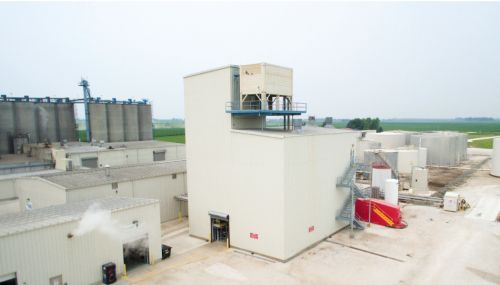All
Artificial Intelligence in Fuel Delivery: Capabilities Close Enough to Touch
by Farid Widjaya, Cargas

How AI could save time for dispatchers and techs without sacrificing accuracy and timeliness.
When we talk about artificial intelligence in a business context, there are two types of AI to differentiate. The first is predictive AI, which analyzes past data and predicts future outcomes. Countless business solutions incorporate AI to produce more accurate forecasts for service needs and inventory levels.
The second type of artificial intelligence – and the reason for all the hype – is generative AI. Instead of regurgitating data trends, generative AI creates something new. The fuel delivery industry has already embraced generative AI to draft customer communications, generate marketing content for HVAC tune-ups, and create training videos for new drivers. But the true power of generative AI for fuel delivery has yet to be unlocked.
The framework for widespread generative AI adoption across the energy industry is already here, and it’s only a matter of time before artificial intelligence transforms how fuel dealers optimize processes, manage data and reports, and handle unique tasks.
Process Optimization
Delivery routing is an artform that has yet to be perfected. With so many variables to juggle – road closures, traffic, weather, and vehicle capacity, to name a few – routing can be a time-consuming and stressful process.
Imagine if fuel dealers could save even a few minutes each week on delivery routing. Generative AI could make easier routing a reality, freeing up hours of time each year without sacrificing the accuracy and timeliness of deliveries.
Generative AI can account for external data, so it could be used to produce daily routes that account for all the roadblocks – figurative and literal – that challenge drivers and the back-office. By accessing real-time data such as traffic patterns and weather conditions, generative AI could plot efficient routes with minimal input from humans.
Plus, generative AI could go beyond delivery optimization to streamline other business processes. For example, generative AI could pool temperature and occupancy data and suggest optimal HVAC settings for a given system. Not only does this save time for techs, but it saves money for customers and the business.
Report and Data Management
While predictive AI uses historical data to identify trends and make predictions, generative AI uses existing data to do so much more. AI’s power lies in its ability to pull data from multiple systems and convert it into something easily digestible.
What makes generative AI special is its shallow learning curve and ease of use. Generative AI only requires conversational language prompts to get the job done. So, if a user wants to use generative AI to create a report, there’s no need to click buttons, fill out forms, or navigate drop-down menus; instead, the user can type exactly what they want, as if they’re messaging a colleague, and get a near-instantaneous response.
When incorporated into fuel delivery software, generative AI could be used to make informed predictions on vital business information. For instance, by analyzing historical data and any plain-text prompts, an AI system could offer insights regarding propane sale trends, runout timelines, and more.
And, when searching generative AI systems for a specific piece of content or a resource or account, users don’t need to get the language right. Generative AI understands synonyms and misspellings. So, if a user searches for a training resource on a service issue regarding a strange sound from an HVAC unit, it doesn’t matter if they search for a resource on “chugging,” “clunking,” or “thumping” sounds – AI understands the intent behind the search and can produce relevant results.
Unique Tasks
Cargas Energy—our proprietary fuel delivery software—includes a delivery exception report module. Users establish parameters for this report to identify deliveries that fall outside of anticipated volumes, including deliveries which were smaller or larger than expected. K-factors are then adjusted for those tanks to ensure efficient, accurate deliveries.
Traditionally, users would have to run the report, review the data for tanks and deliveries that meet the exception parameters, and then adjust the forecasting parameters for those tanks accordingly.
Fortunately, generative AI excels at taking complex processes and whittling them down by taking on the brunt of the labor. In the case of delivery exception reports, generative AI could monitor the data 24/7 and send immediate notifications when a delivery falls outside of selected parameters. Advanced generative AI could even recommend how to adjust the forecasting data for a tank to optimize future deliveries – and save plenty of time.
Generative AI Benefits for Fuel Dealers
If you’ve kept an ear open to conversations about artificial intelligence in business, you’ve probably heard your fair share of doom-and-gloom predictions about AI replacing jobs. In reality, artificial intelligence isn’t at a point where it’s going to start delivering fuel. AI, in its current form, is a powerful tool that is just starting to make waves in the energy industry.
By managing business processes with conversational language prompts, fuel dealers enjoy faster, more reliable, and more efficient business insights. This means teams can spend less time on redundant tasks and more time satisfying customers.
AI in fuel delivery software isn’t some futuristic concept—it’s already here, and it’s a matter of time before it evolves into something truly transformative. It’s likely AI will transform countless other areas of fuel delivery and HVAC service, and we should all be excited to see where these transformations take us.
Farid Widjaya is an Energy Product Marketer at Cargas. Contact him at fwidjaya@cargas.com for more information on AI in the fuel delivery industry and how Cargas Energy is keeping up with the latest tech trends.
Related Posts
 Why Quality Matters in Your Biofuel Blends
Why Quality Matters in Your Biofuel Blends
Posted on June 25, 2025
 HEAT Show Gears Up
HEAT Show Gears Up
Posted on June 25, 2025
 What’s Next in Boiler Technology
What’s Next in Boiler Technology
Posted on June 25, 2025
 How Intelligent Are Your Integrated Customer Platforms?
How Intelligent Are Your Integrated Customer Platforms?
Posted on June 25, 2025
Enter your email to receive important news and article updates.
